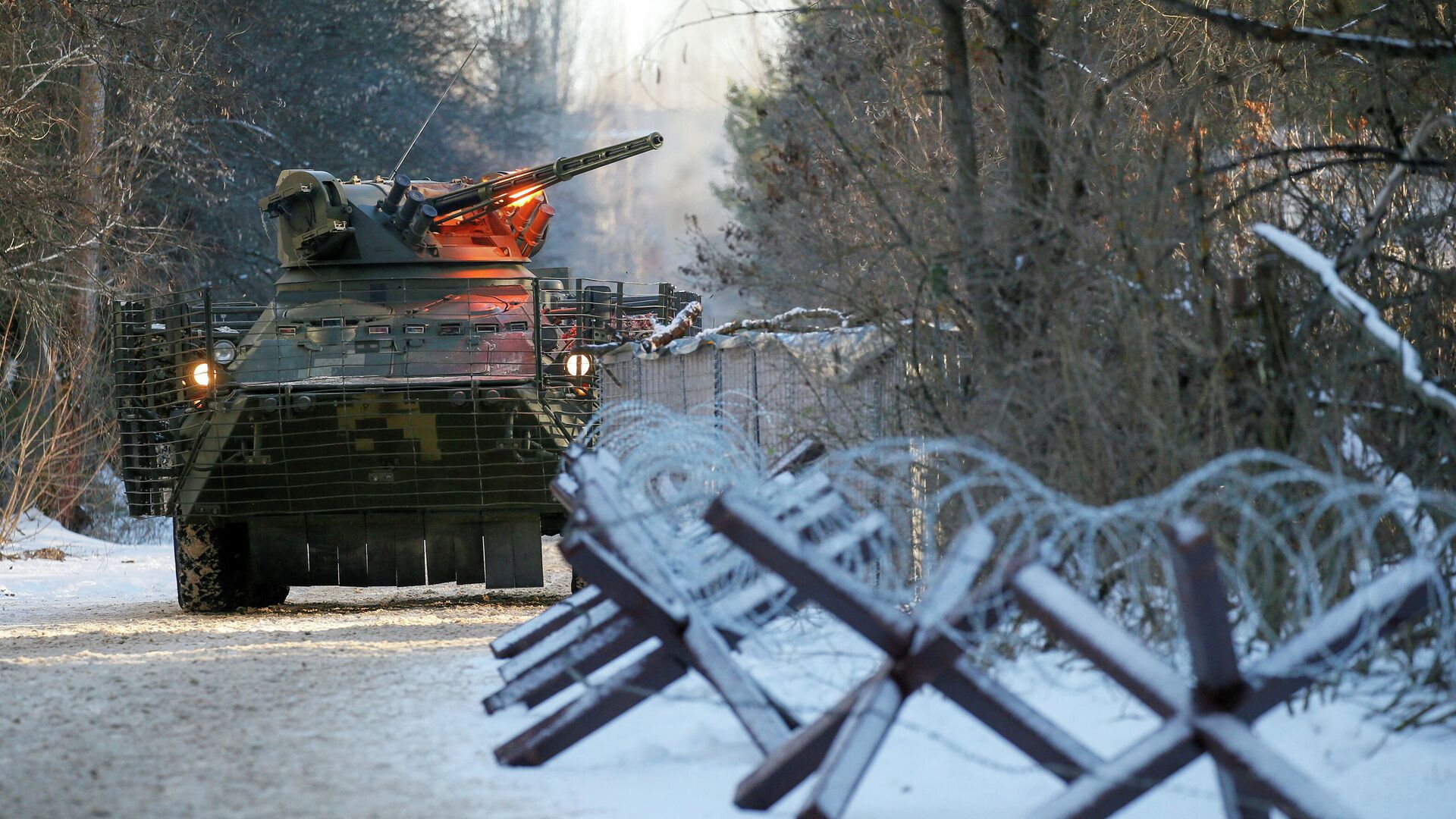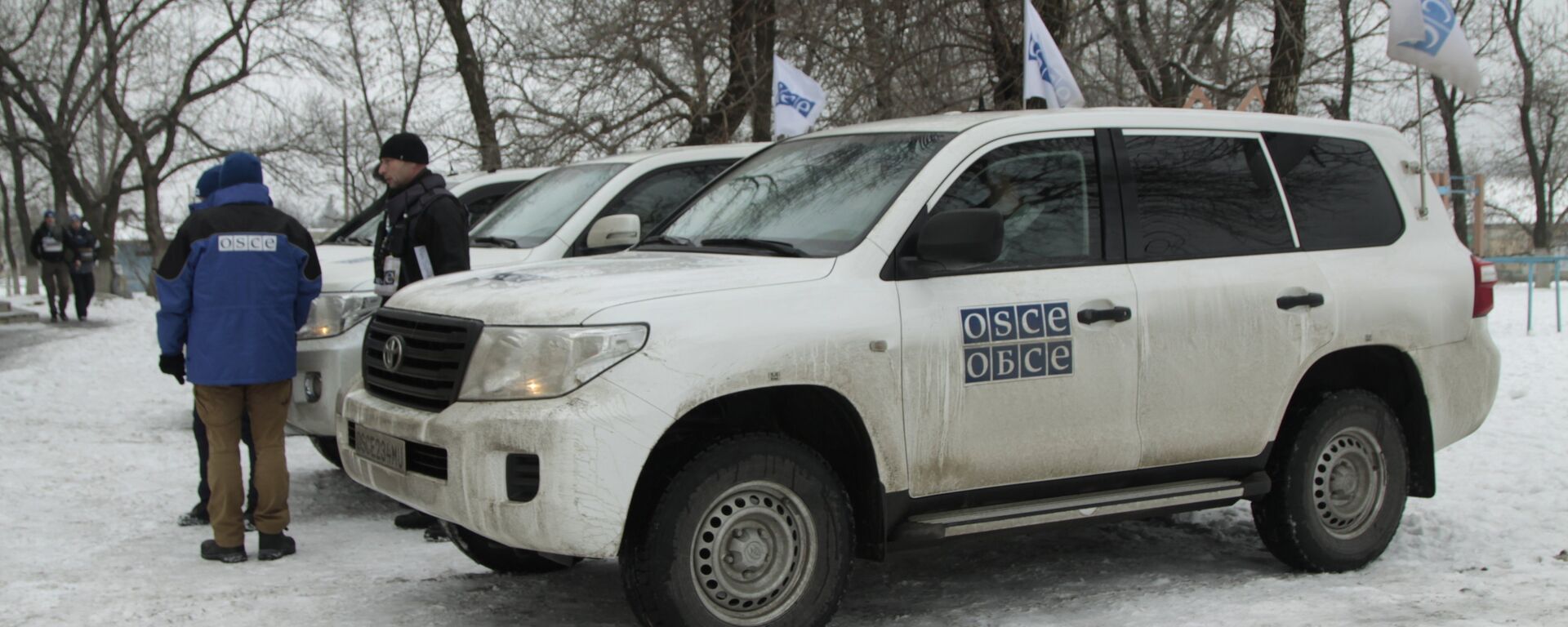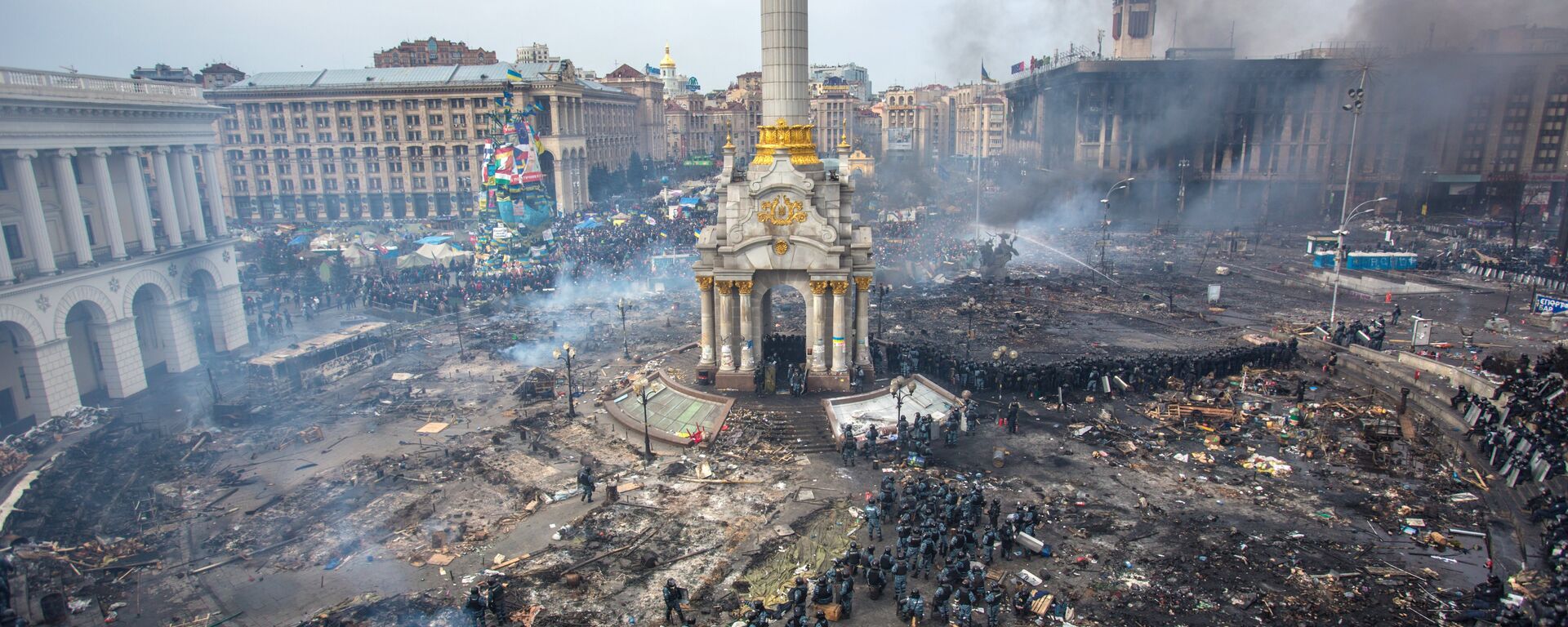White House Claims 'Russian Invasion of Ukraine' Could Start Any Day Now, Can't Predict Specific Day
14:11 GMT 13.02.2022 (Updated: 16:24 GMT 13.02.2022)

© REUTERS / GLEB GARANICH
Subscribe
On Friday, US media alleged that Russian President Putin has made up his mind to invade Ukraine, saying the incursion is expected to commence "as soon as February 16." Washington used these reports to call on all Americans to evacuate the Eastern European country ASAP. Ukraine's president has asked the media to provide more information.
A Russian invasion of Ukraine may begin any day now but the White House cannot predict the specific day, National Security Advisor Jake Sullivan has said.
"A major military action could begin by Russia in Ukraine any day now," Sullivan said, speaking to CNN on Sunday. "The way they have built up their forces, the way they have maneuvered things in place, makes it a distinct possibility there will be major military action very soon," he added.
Sullivan stressed that the US would not allow Russia to start a "surprise" attack against Ukraine, promising to continue to share intelligence and warning the world to be prepared for Moscow to stage a pretext to justify an invasion.
"We are prepared to continue to work on diplomacy, but we are also prepared to respond in a united and decisive way with our allies and partners should Russia proceed," the top Biden national security official said.
In a separate interview with Fox News on Sunday, Pentagon Spokesman John Kirby said he couldn't confirm Friday's report by Politico that Russia would start an invasion of Ukraine on 16 February.
"I'm not in a position to confirm those reports," Kirby said. "We want to be careful about publicly talking about intelligence and sources and methods and that kind of thing. What I can tell you [is]...we believe a major military action could occur any day now," he added, apparently reading from the same talking points as Sullivan before his television appearance.
"And again, these assessments are coming from a variety of sources, and not exclusively just inside intelligence, but also what we're seeing in plain sight; these more than 100,000 troops now continue to be arrayed against Ukraine's border," Kirby said.
"I think a mosaic of the intelligence that we're seeing -not speaking to it specifically but uh, but you know we have good sources of intelligence and they're telling us that things are sort of building now to some sort of crescendo opportunity for Mr. Putin," the Pentagon spokesman added.
Pentagon Press Sec. John Kirby says "a mosaic of the intelligence" suggests Russian attack on Ukraine could be imminent. pic.twitter.com/Bse3Skq7y4
— The Recount (@therecount) February 13, 2022
Provocation Fears
The officials' comments follow a warning by President Biden on Saturday in a telephone conversation with Russian President Vladimir Putin that Moscow would be made to pay "swift and severe costs" if it went ahead with its supposed Ukraine invasion plans. Kremlin aide Yuri Ushakov dismissed the US "invasion" claims and charged Washington with "artificially inflating hysteria."
Also on Saturday, Russian Foreign Ministry Spokeswoman Maria Zakharova accused the US government of colluding with the media to spark a fit of hysteria regarding the situation in Ukraine, warning that the US may be looking for a provocation to spark a conflict in the region.
Moscow expressed concerns on Sunday about the decision of several countries to redeploy representatives to the Organisation for Security Co-operation in Europe's special monitoring mission in Ukraine (SMM). Earlier in the day, a spokesman for the self-proclaimed Lugansk People's Republic warned that the withdrawal of EU, US, and UK representatives from the SMM under the pretext that their safety could not be assured could mean that a large-scale provocation by Kiev or its Western benefactors may be in the offing.
US and NATO officials and media began talking about Russia's alleged plans to "imminently" invade Ukraine last fall, regularly citing the "100,000" Russian troops near the border and quoting reports by unidentified officials to various outlets and calling on diplomats and nationals to evacuate the country. Russia has dismissed that it has any plans to invade its neighbour, calling on Kiev to implement the Minsk Agreements on Ukrainian peace, and suggesting that the West's allegations about Moscow's aggression may be aimed at justifying the further buildup of NATO troops near Russian frontiers.
Officials in Kiev have also questioned their Western backers' invasion claims, saying Russia would need far more troops than it currently has near Ukraine to mount a successful invasion, and that Ukrainian intelligence is unaware of such invasion plans.
Ukraine Conflict Marks 8th Anniversary
Tensions in relations between Russia and the West over Ukraine began in February 2014, when pro-Western political forces backed by ultranationalist fighters overthrew the neutrality-seeking government in Kiev and attempted to push Ukraine toward integration with the European Union and NATO. The coup d'etat prompted authorities in Crimea to hold a referendum on the peninsula's status in March of 2014, with residents voting overwhelmingly to split off from Ukraine's jurisdiction and rejoin Russia. Efforts by independence-seeking forces across eastern and southern Ukraine opposed to the post-coup authorities to similarly split with Kiev led to a military and security crackdown, with activists in cities including Kharkiv and Odessa disappeared or murdered, and troops sent to the regions of Donetsk and Lugansk to crush fledgling pro-independence militia. The latter move sparked a civil war which led to the deaths of at least 13,000 people, and left over 2.5 million people displaced.
In February 2015, the leaders of Ukraine, Russia, Germany and France met in the Belarusian capital of Minsk to sign the Minsk Agreements – stipulating a ceasefire, the pullback of forces from the conflict zone, elections in the breakaway regions and amendments to Ukraine's laws to grant the eastern breakaways broad autonomy in exchange for their return to Kiev's jurisdiction. The ceasefire was successfully implemented (despite regular reports of sniper and artillery fire, troop movements and other violations), but the Ukrainian government has refused to implement the political portion of the deal. Shortly after his election in 2019, Ukrainian President Volodymyr Zelensky signaled his intent to do implement Minsk, prompting tens of thousands of ultranationalists to flood the streets of Kiev threatening to overthrow the government and forcing him to relent.


